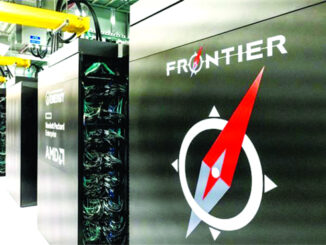
DUBAI (TIP): Kalpesh Kinariwala, an Indian-born businessman based in the United Arab Emirates, allegedly did not heed that guidance. The 49-year-old was arrested last month in Dubai, where he now faces criminal charges for forgery and embezzling at least $10.8 million from a Chilean iodine company. Kinariwala pleaded not guilty. His next hearing is scheduled for August 22, according to an August 5 report in The Daily Beast.
A separate civil action underway alleges that, in total, Kinariwala’s scheme caused $107 million in damages for the Chilean firm, Cosayach, whose parent company is one of the planet’s largest iodine producers. According to the claims, he bribed a Cosayach executive sales manager in Chile, who in turn helped Kinariwala secure higher volumes of iodine than his competitors and lie about the resale prices he was able to generate.
The pair’s relationship eventually devolved, and the sales director blew the whistle on the operation. Near the end, as Kinariwala had become increasingly frustrated, he told the director that he hoped they could mend their disputes “without any bloodshed,” according to court documents. Evidently intimidation didn’t work.
If convicted, the allegations could deal a major financial and reputational blow to Kinariwala and his business, Pantheon Group, which has interests in mining, oil and gas, and luxury real estate. Founded in 2001, Pantheon claimed in 2020 that its annual revenue exceeded $325 million.
Kinariwala and his companies did not respond to numerous requests for comment. In recent weeks he took his Facebook page offline and deleted the contents of his LinkedIn profile.
Kinariwala’s alleged scheme was simple. According to a forensic analysis conducted on behalf of the plaintiffs, he paid an initial series of bribes totaling $412,000 to the sales director, plus a cut of future illicit profits that ultimately surpassed $2 million. In return, the director guaranteed Kinariwala’s companies the bulk of Cosayach’s production of iodine, an element used for pharmaceuticals, human nutrition, fertilizers, electronics, and other applications. The companies would resell the iodine on behalf of Cosayach in Asia and North America and receive a commission on the final sale.
At the same time, the director agreed to help Kinariwala’s businesses lie about those resale prices—allegedly understating to Cosayach what the iodine products were actually selling for, and then pocketing the difference. The director would receive a “personal economic compensation for the above,” according to a written affidavit signed in December 2020.
Kinariwala bluntly outlined the arrangement in an email to the director in the fall of 2011, including Pantheon’s “commitment to revenue sharing” with him. “I’m glad we could… spend some quality time to take our relation to the next level,” Kinariwala wrote, according to a document filed with the court.
The lack of discretion alarmed his new co-conspirator. “I sincerely do not like such an aggressive document you have sent me,” the director replied. “I am really concerned about it. Please call me to discuss.”
The pair nonetheless continued with their alleged plan. The forensic analysis claims that Kinariwala’s companies falsified bank letters to dupe Cosayach into accepting below-market invoices for iodine sales. In one transaction, for instance, they fraudulently underreported the sale price by about 4 percent, documents claim, generating an embezzled sum of nearly $25,000.
Kinariwala allegedly used a network of shell companies to conceal any financial irregularities. He directed some business through a U.S. firm, American Iodine Company, whose website lists its address at an office complex in Plano, Texas. Nobody picked up the phone when The Daily Beast called the listed number on two separate days, and emails requesting additional information went unanswered.
It was easy money, but as the years passed Kinariwala seemingly grew unhappy with his partner’s execution. In August 2018 he emailed to complain about supply shortages and alleged that the director was secretly selling iodine to other customers. “It is upsetting and I want to fix this quickly,” he wrote. “Hope that we will be able to resolve this without any bloodshed.”
The director then replied to an email from one of Kinariwala’s employees with the subject line “Working in peace and no war,” and insisted that he wanted to alleviate the frustration.
Apparently unsatisfied, Kinariwala responded to the message three days later, demanding that the director “help me get back my control and dominance.”
“It’s only fair that u really balance this shit quickly to keep me motivated to continue this biz,” he added.
Not long after, perhaps scared by the tacit threats, the director alerted Cosayach to their scheme.
Now, the legal tumult is threatening Kinariwala’s carefully manicured rags-to-riches story. His father died when he was 13, and as he tells it, Kinariwala made it big by betting on himself, striking out as entrepreneur rather than joining his family’s business.
“I was a rebel in my house,” he told Arabian Business in 2018. “That’s how Pantheon was formed—with borrowed capital of $2,000 and a borrowed office of 100 square feet.”
His first big score came by distributing iodine in India, and as the firm grew, Kinariwala learned a lesson about keeping a close watch on his employees. “It’s a basic human tendency that if they know they’re not being inspected they deviate,” he said, curiously. “That helps me keep my company aligned to my goals and vision. So that’s the secret.”
(With inputs from The Daily Beast)





Be the first to comment